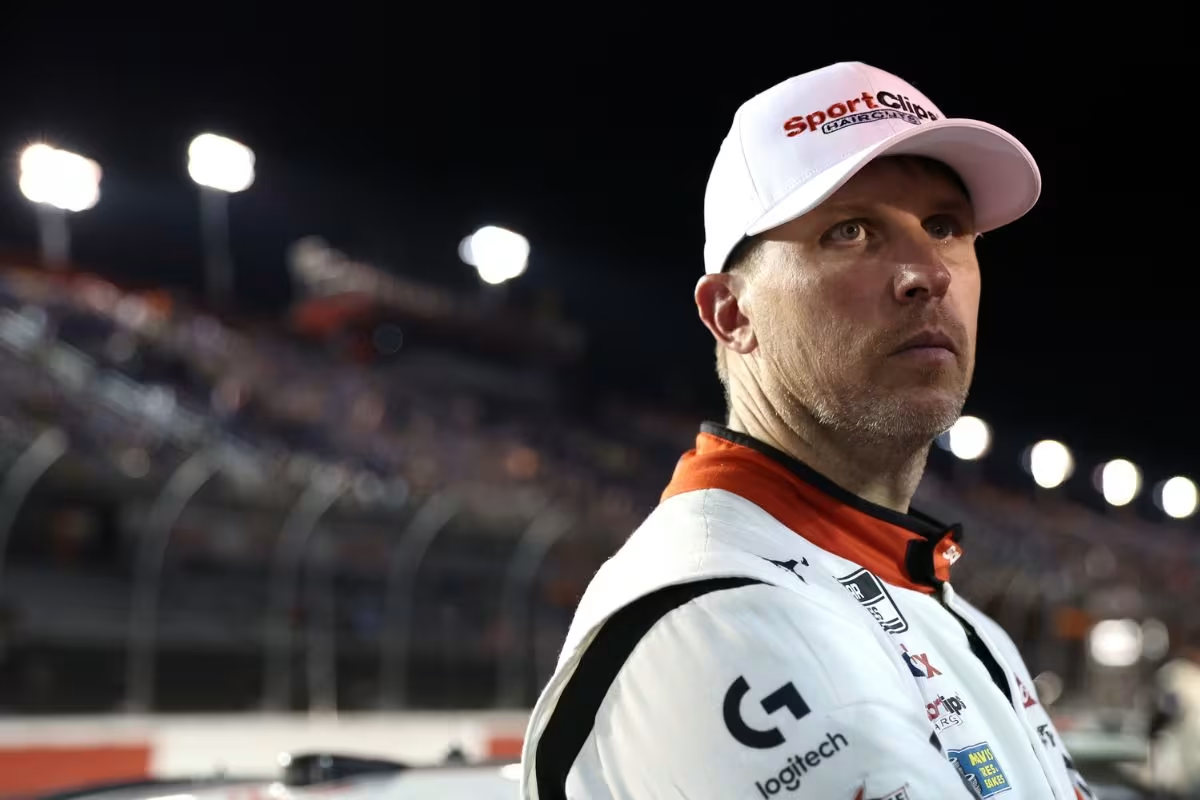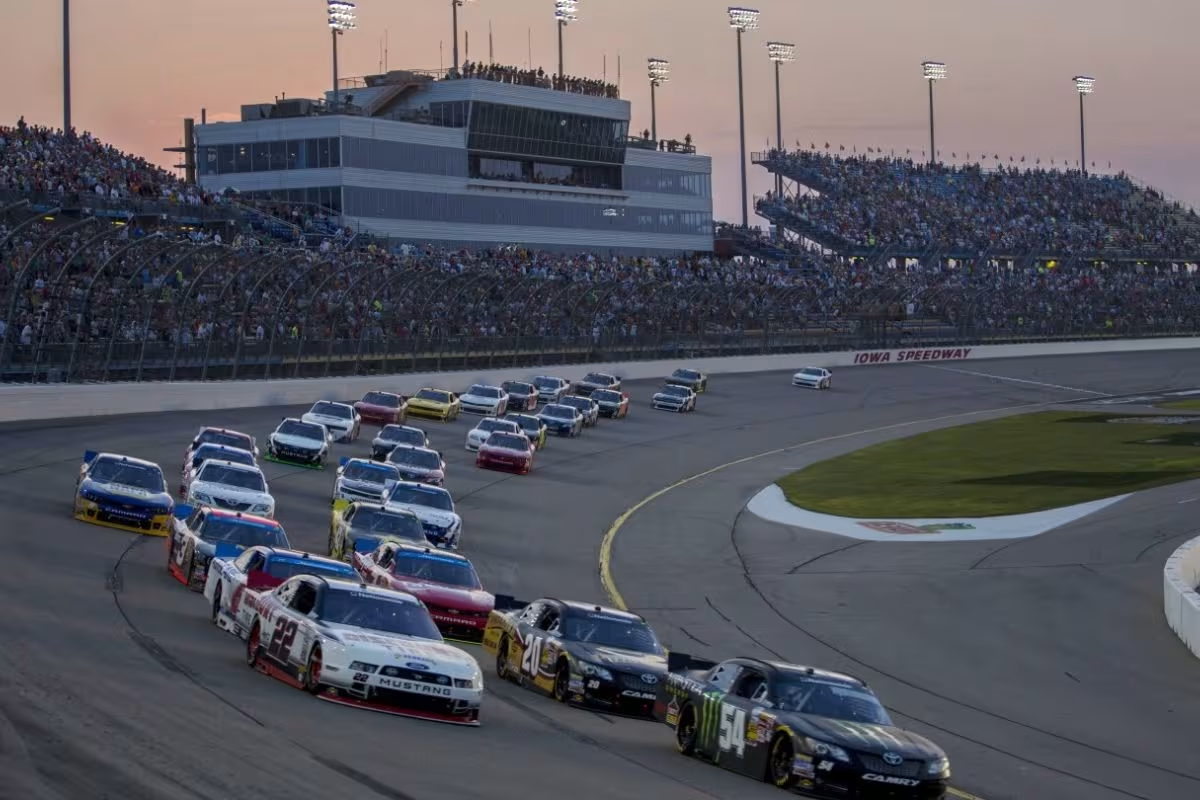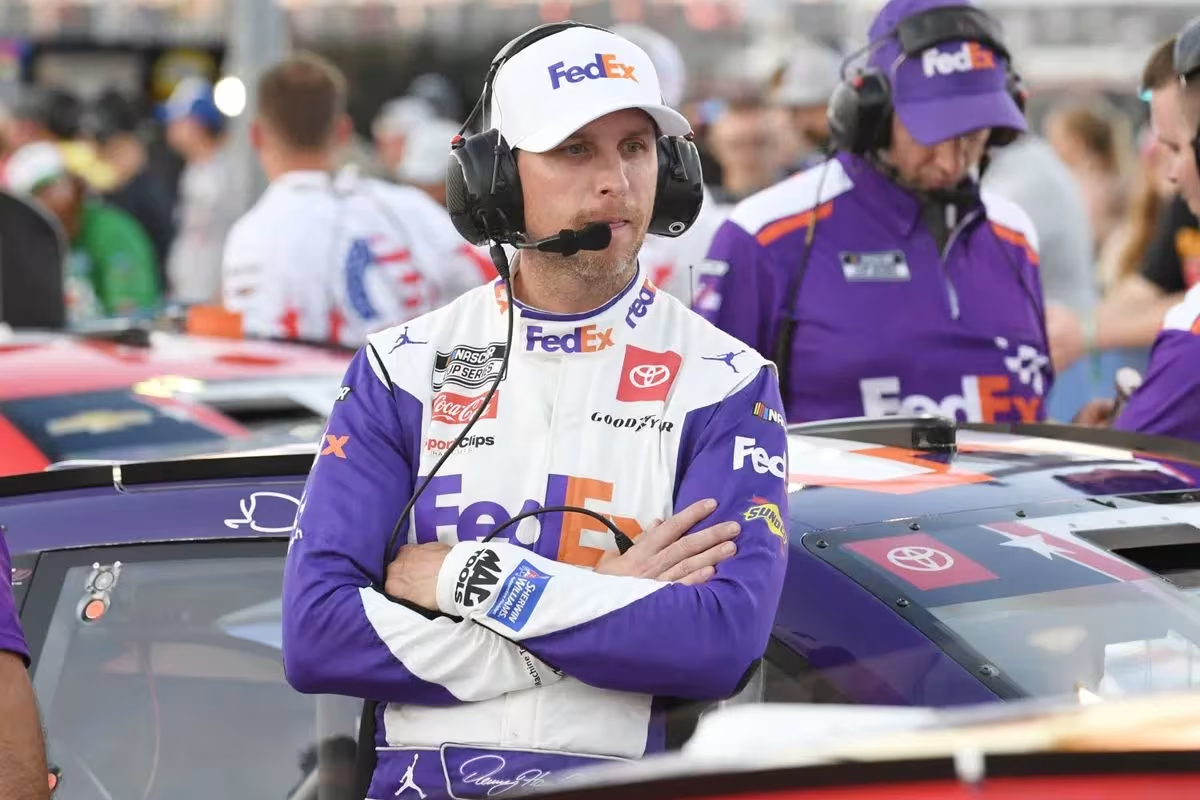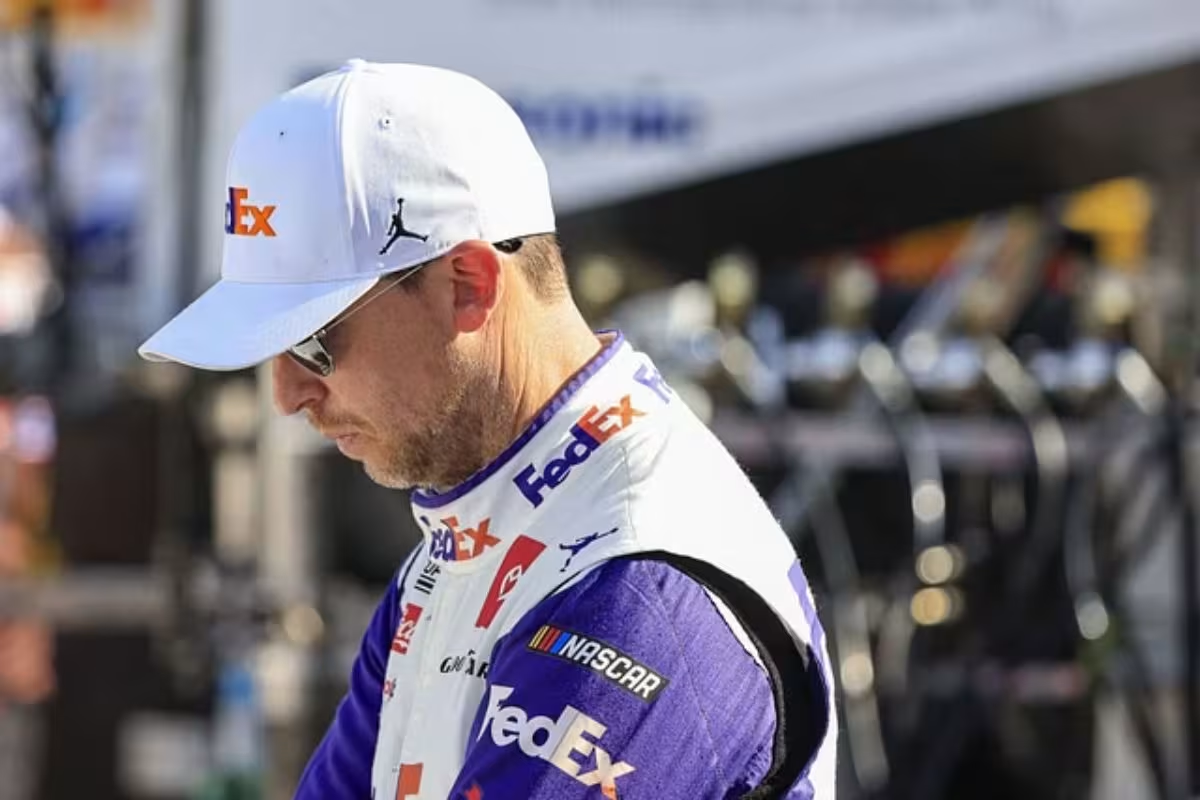Denny Hamlin Accuses NASCAR of Censorship: In the past couple Denny Hamlin‘s recent allegations of censorship within NASCAR have sparked a critical dialogue about the extent to which teams and drivers can freely express their opinions in a sport often characterized by its competitive nature. His comments suggest a growing frustration with the organization’s handling of team dynamics and communication, raising crucial questions about transparency and representation
Key Highlights
- Denny Hamlin raised concerns about NASCAR’s censorship, suggesting teams’ voices may be suppressed within the organization.
- The accusations highlight potential impacts on team dynamics and open communication among participants in the sport.
- Hamlin’s criticism reflects growing dissatisfaction among athletes regarding media narratives and coverage of NASCAR events.
- The call for transparency emphasizes the need for accountability in how NASCAR manages team communications and media relations.
- Ongoing legal actions, like the lawsuit against NASCAR’s charter system, further complicate the landscape for team representation and expression.
23XI Racing and Front Row Motorsports File Lawsuit Against NASCAR
In a notable development within the NASCAR community, 23XI Racing and Front Row Motorsports have formally initiated legal action against the governing body of the sport. This lawsuit, spearheaded by co-owners Michael Jordan and Denny Hamlin, was filed in the Western District of North Carolina and centers on allegations of antitrust violations related to NASCAR’s charter system.
The plaintiffs contend that the current charter agreement unfairly restricts competition by binding teams to the series, its tracks, and its suppliers, ultimately diminishing their operational autonomy.
The core of the dispute lies in the perceived inequity of the charter deal, which both teams opted not to sign. As a result, they face considerable financial repercussions, including the loss of substantial revenue streams integral to their operations.
The suit aims to challenge these constraints, arguing that NASCAR’s practices create an environment where competition is stifled, and only a select group of teams benefit from financial security.
23XI Racing, having recently invested heavily in its infrastructure, views the current charter system as an impediment to its growth and competitive viability.
By pursuing this legal action, both teams seek not only to protect their financial interests but also to advocate for a more equitable landscape within NASCAR.
This case could have far-reaching implications not only for the involved parties but also for the broader framework of team operations and competition in the sport.
The outcome may redefine the relationship between NASCAR and its member teams, setting crucial precedents for future governance.
Denny Hamlin’s Reaction to the Media’s Biased Interview
Reacting to the media’s portrayal of a recent interview, Denny Hamlin expressed frustration over what he perceived as a deliberate skewing of the narrative. The interview, which involved Hamlin, his team, and attorney Jeffrey Kessler, was intended to clarify the ongoing tensions between NASCAR and the teams regarding the charter system.
However, Hamlin alleged that the media outlet edited the footage to fit a specific agenda, thereby undermining the integrity of the discussion.
The essence of the controversy stems from the current lawsuit initiated by 23XI Racing and Front Row Motorsports, which has raised questions about NASCAR’s charter agreements. The media’s enthusiasm to sensationalize the story appeared to compromise the factual representation of the teams’ positions.
Kessler’s involvement, referencing his notable legal background, was essential in establishing a sense of legitimacy for the teams’ claims. However, when the reporter realized that Kessler’s responses did not align with their preconceived narrative, they resorted to selective editing.
Denny Hamlin’s discontent highlights a broader concern about media integrity and the responsibility of journalists to present information accurately. By tailoring content to fit an agenda, the media risks alienating key stakeholders and distorting public perception of significant issues.
Hamlin’s reaction serves as a reminder that while media plays an important role in shaping narratives, it must do so with a commitment to authenticity and fairness, especially in a landscape as complex and charged as professional racing.
Denny Hamlin Calls Out Media Bias on X
Following his earlier frustrations with media misrepresentation, Denny Hamlin took to X to voice his concerns about perceived bias in coverage surrounding his recent interview. In a pointed post, Hamlin criticized Channel 90, asserting that their editorial decisions exemplify a troubling trend of censorship within media. He highlighted a specific interview that, contrary to expectations, did not align with the network’s desired narrative.
While censorship is a big topic in today’s media world,
Channel 90 might be the poster child. An interview didn’t go the way they hoped after our attorney continued to state fact after fact even tho they tried their best to refute, they have since edited/deleted that interview…— Denny Hamlin (@dennyhamlin) October 3, 2024
According to Hamlin, despite the insistence of his attorney on factual accuracy, Channel 90 attempted to counter those facts but ultimately resorted to editing and deleting the interview from their platforms.
Hamlin’s remarks underscore a growing discontent among athletes regarding the integrity of media narratives. By suggesting that the network’s actions reveal an inherent bias, he raises critical questions about the objectivity of sports journalism. The deletion of content that does not conform to a specific viewpoint not only undermines the principles of fair reporting but also compromises the public’s access to complete and unfiltered information.
This incident is particularly notable against the backdrop of ongoing tensions between Hamlin and NASCAR, particularly following recent controversies surrounding car design changes.
Hamlin’s Reservations About NASCAR’s New Car Design for Talladega
How will the recent design changes to NASCAR’s cars impact driver performance and safety at Talladega? As the series prepares for the next race at the iconic superspeedway, the modifications aimed at addressing aerodynamic concerns have sparked considerable debate among drivers.
“For one, it looks like a**. And second, it hurts visibility… The problem is that we take tear-offs off of our front windshield. And superspeedways are one of the worst tracks for debris on the front windshield. So, we need to get those tear-offs off.” -(hamlin)
Remarkably, Denny Hamlin has expressed his reservations, highlighting that the alterations, particularly to the car’s roof, may compromise both visibility and general aesthetics.
The decision to modify the roof design stems from a pressing need to mitigate the risk of cars flipping, a concern emphasized by recent incidents, including Corey LaJoie’s frightening crash at Michigan International Speedway.
Moreover, the initial proposal for a ‘sharkfin spoiler’ extension to the windshield was met with widespread discontent among drivers, eventually leading NASCAR to reconsider that approach.
This highlights a broader issue within the sport regarding the balance between innovation for safety and maintaining driver input. As teams gear up for Talladega, the implications of these design changes warrant careful examination, particularly as they relate to the drivers’ ability to perform effectively under the demanding conditions that characterize this high-speed venue.
Talladega, Playoffs, and Hamlin’s Quest to Break His Winless Streak
As Denny Hamlin approaches the significant race at Talladega, the weight of his winless streak looms large, intertwining with the high stakes of the playoffs. Importantly, he has secured top-10 finishes during the playoffs at Talladega for the last five consecutive years and clinched victory there in 2020. This combination of past performance and current urgency creates a compelling narrative as he endeavors to break his 19-race winless streak.
The significance of Talladega extends beyond individual achievement; it serves as a vital juncture in the playoffs. With his ongoing legal issues and the pressure of NASCAR’s evolving landscape, a strong showing at Talladega could provide Hamlin with not only a much-needed morale enhancement but also a tactical advantage in the playoff standings.
The unpredictable nature of superspeedway racing adds an element of uncertainty, where skill, planning, and a touch of luck converge. While Hamlin’s recent struggles have raised questions about his adaptability to the new car design, his historical performance at Talladega suggests he possesses the necessary experience to contend effectively.
News in Brief: Denny Hamlin Accuses NASCAR of Censorship
Denny Hamlin’s accusations of censorship within NASCAR underscore considerable tensions between drivers and the governing body. The concerns raised reflect broader issues regarding the representation of athlete perspectives and the requirement for transparent communication within the sport. The lawsuits filed by 23XI Racing and Front Row Motorsports further illuminate the complexities of team dynamics in the current regulatory environment. Ultimately, encouraging an open dialogue is crucial for the integrity and evolution of NASCAR as a competitive organization.
ALSO READ: Denny Hamlin’s Take on NASCAR’s Kansas Controversy: A Call for Change




